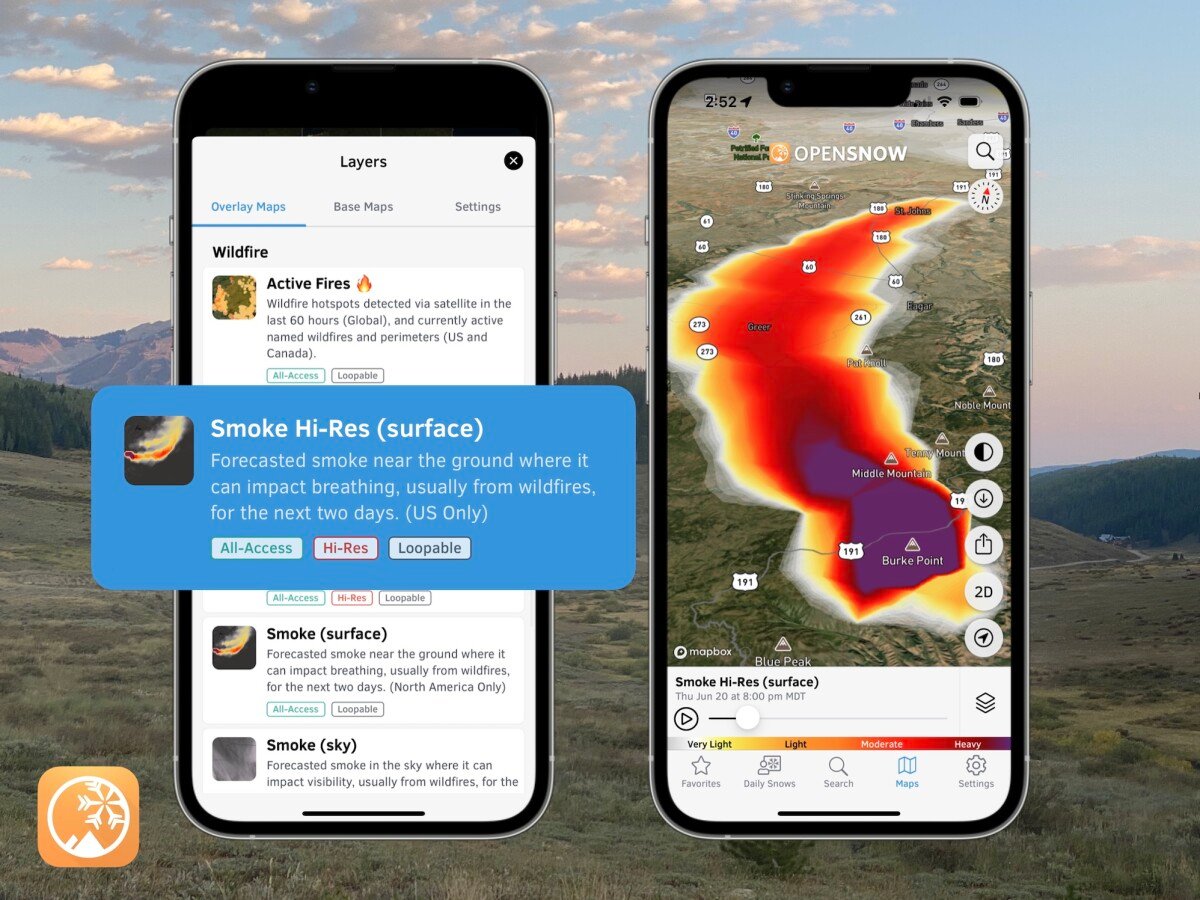Copper Mountain Daily Snow

By Sam Collentine, Meteorologist Posted 10 months ago September 13, 2024
2024-2025 Copper Mountain Winter Forecast Preview
Summary
La Nina conditions are growing and are favored to emerge ahead of the 2024-25 winter season. This winter forecast preview will dig into historical snowfall data for weak La Nina winters and provide some clues on what that could mean for Copper Mountain.
Update

For the upcoming 2024-2025 winter season, La Niña conditions are growing and are favored to emerge during the late fall. Before getting into the details on what that could mean for Copper Mountain, it's important to remember that any winter outlook will contain an inherent degree of uncertainty.
Long-range forecasts are rarely accurate. These forecasts cover 3-6 months but we know that skiing quality improves and degrades with storm cycles that last a few days to a week.
La Niña, Explained
The term La Niña refers to the large-scale ocean-atmosphere climate phenomenon linked to periodic cooling in sea-surface temperatures across the central and east-central equatorial Pacific.
La Niña represents the cool phase of the ENSO cycle and means that the ocean water temperatures are cooler than average.
Ski Season Snowfall vs. La Niña
The map below shows winter snowfall during seven La Niña episodes. The lower the number, the stronger the La Niña. The blue dots are above average, the white dots are average, and the orange dots are below average snowfall.

"ENSO Neutral" conditions (neither La Niña nor El Niño) have persisted through the summer of 2024 and long-range models have been projecting a higher-than-average chance of a La Niña taking over during the winter of 2024-2025.
The weekly Nino-3.4 region index (sea surface temperatures in the east-central Pacific) anomaly has dropped from 1.8°C during the 2023-2024 winter season to -0.1°C as of September 9, 2024.
A similar change from El Niño to a weak La Niña last occurred ahead of the 2016-2017 winter season.
Thanks to my colleague Alan Smith, we have identified six winters since 1990 in which weak La Niña conditions were present:
- 2000-2001
- 2005-2006
- 2008-2009
- 2016-2017
- 2017-2018
- 2022-2023
We will use these winter seasons that featured a weak La Niña as “analog” years for this analysis.
Historical Weak La Niña Seasons @ Copper Mountain
After looking back at the six weak La Niña winters and comparing them against the 30-year median snow water equivalent (SWE) on March 31 of 14.6 inches at the Copper Mountain SNOTEL station, I've found that the median SWE during those years is 15.1 inches on March 31 or 103% compared to the 30-year normal.
SWE on March 31 During La Niña
- 1991-2020: 14.6" (30-year normal)
- 2000-2001: 12.8" (88%)
- 2005-2006: 17.4" (119%)
- 2008-2009: 15.5" (106%)
- 2016-2017: 15.9" (109%)
- 2017-2018: 11.0" (75%)
- 2022-2023: 14.7" (100%)
One out of the six La Niña years produced well above-normal snowfall, three produced near-normal snowfall, and two produced well below-normal snowfall.
For timing, when looking at the change in SWE each month during those years and comparing them against the 30-year median change in SWE for that month:
- October: 0.4 (39%)
- November: 2.5 (100%)
- December: 3.6 (138%)
- January: 3.1 (103%)
- February: 2.4 (86%)
- March: 2.1 (73%)
This gives us a signal that the shoulder seasons could be below-normal, while the winter months could be near to above-normal.
Overall, history tells us that Copper Mountain tends to be near normal to potentially slightly above-normal for snowfall during weak La Niña winters.
Having said all of this, for skiers and snowboarders, keep in mind that when it comes to finding the best conditions, it’s all about timing. To have the best chance of enjoying the deepest powder, our recommendation is to dial in your plans 7-10 days in advance.
Sometimes, longer-range forecasts can identify possible storms 1-2 weeks (or longer) in advance, but often, forecast confidence in the details of each storm only begins to increase when the system is about one week away or closer.
Tap the link below to view an automated snow forecast for the ski resort:
Along with automated weather forecasts for nearby towns:
Stay tuned for daily updates beginning in November.
Thanks for reading!
Sam Collentine
[email protected]
Announcements
NEW: Fall Colors Map

Time the peak fall foliage for Copper Mountain and any other area in the continental United States with our new "Fall Colors" map overlay.
The map is updated twice per week and animates from historical color starting in early September through forecast color ending in late November.
Getting Started
- Tap the "Maps" tab.
- Tap the overlay button.
- Tap "Fall Colors".
- Scrub the bottom slider.
Fall Color Scale
- Green: Little to No Color
- Yellow: Low Color
- Light Orange: Moderate Color
- Dark Orange: High Color
- Red: Peak Color
- Black: Past Peak Color
View → Fall Colors Map
About Our Forecaster




